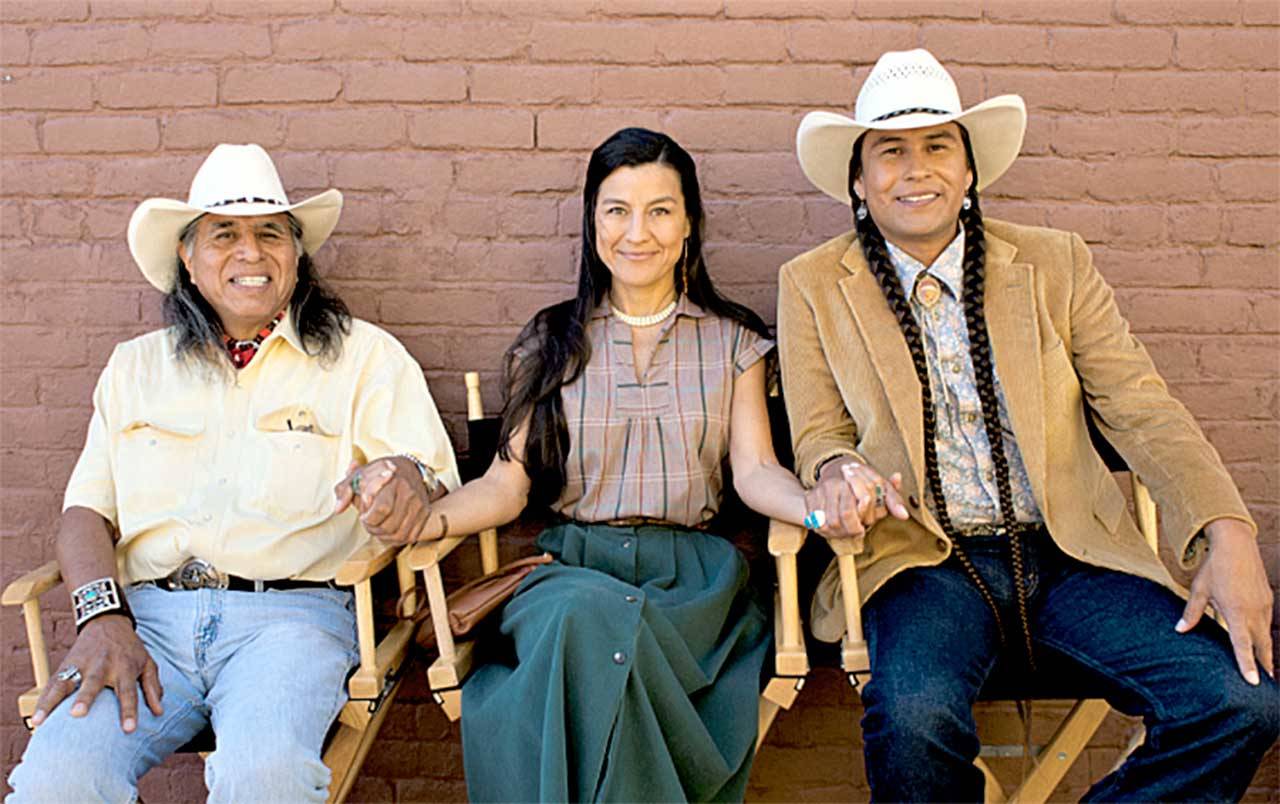PORT TOWNSEND — At first look, the August Port Townsend Film Festival Pic, “The Cherokee Word for Water,” is about Wilma Mankiller. The larger picture, though, spotlights community members getting together to improve their own lives.
Based on the true story of the Bell Waterline Project of Oklahoma, this feature film is available for streaming through next Monday, with tickets on sale for $10 at PTfilmfest.com. Proceeds benefit the nonprofit film festival and the Jamestown S’Klallam library in Blyn. For more information, phone the festival office at 360-379-1333 or email info@ptfilmfest.com.
Mankiller (1945-2010) is portrayed by Kimberly Norris Guerrero, an Oklahoman and member of the Colville Indian tribe who also has Salish-Kootenai heritage. Mankiller’s husband and fellow community organizer, Charlie Soap, is played by Mo Brings Plenty, an Oglala Lakota actor. Soap co-produced and co-directed “The Cherokee Word for Water.”
Along with presenting the 98-minute film, festival executive director Janette Force is uploading her interview with Guerrero and Soap, so PTFF Pic viewers can watch both at home.
“The Cherokee Word for Water” screened at the Port Townsend Film Festival in 2016; five years later, Force and the festival crew decided it’s as meaningful as ever.
The movie tells the story of a reawakening of universal indigenous values of reciprocity and interconnectedness, according to the film festival’s invitation.
“The power of community organizing could never be more relevant,” Force said Monday.
“Wilma Mankiller is legendary for her capacity to bring folks together for our common good,” she added.
Mankiller’s skill in building bridges led to her 1985 election as the first female to lead the modern Cherokee Nation — and she energized a movement of self-help projects across Indian Country that continue today.
Set in the early 1980s, “The Cherokee Word” begins with Mankiller’s return to her rural Oklahoma Cherokee community, where many houses lack running water and others are little more than shacks. After centuries of being dehumanized and dispossessed of their land and identity, the people no longer feel they have power or control over their lives or future.
The movie reveals the struggle for, opposition to, and ultimate success of this community to bring running water to their families by using the traditional concept of gadugi: working together to solve a problem.
A coalition of volunteers ultimately joined forces to build nearly 20 miles of waterline, and in the process, they inspired community members to trust one another.
For more about the film, see cw4w.com.
The Port Townsend Film Festival also plans several in-person events and, at downtown venues and online, scores of movies presented Sept. 23-Oct. 3. Details can be found at PTfilmfest.com.
________
Jefferson County senior reporter Diane Urbani de la Paz can be reached at 360-417-3509 or durbanidelapaz@peninsuladailynews.com.

